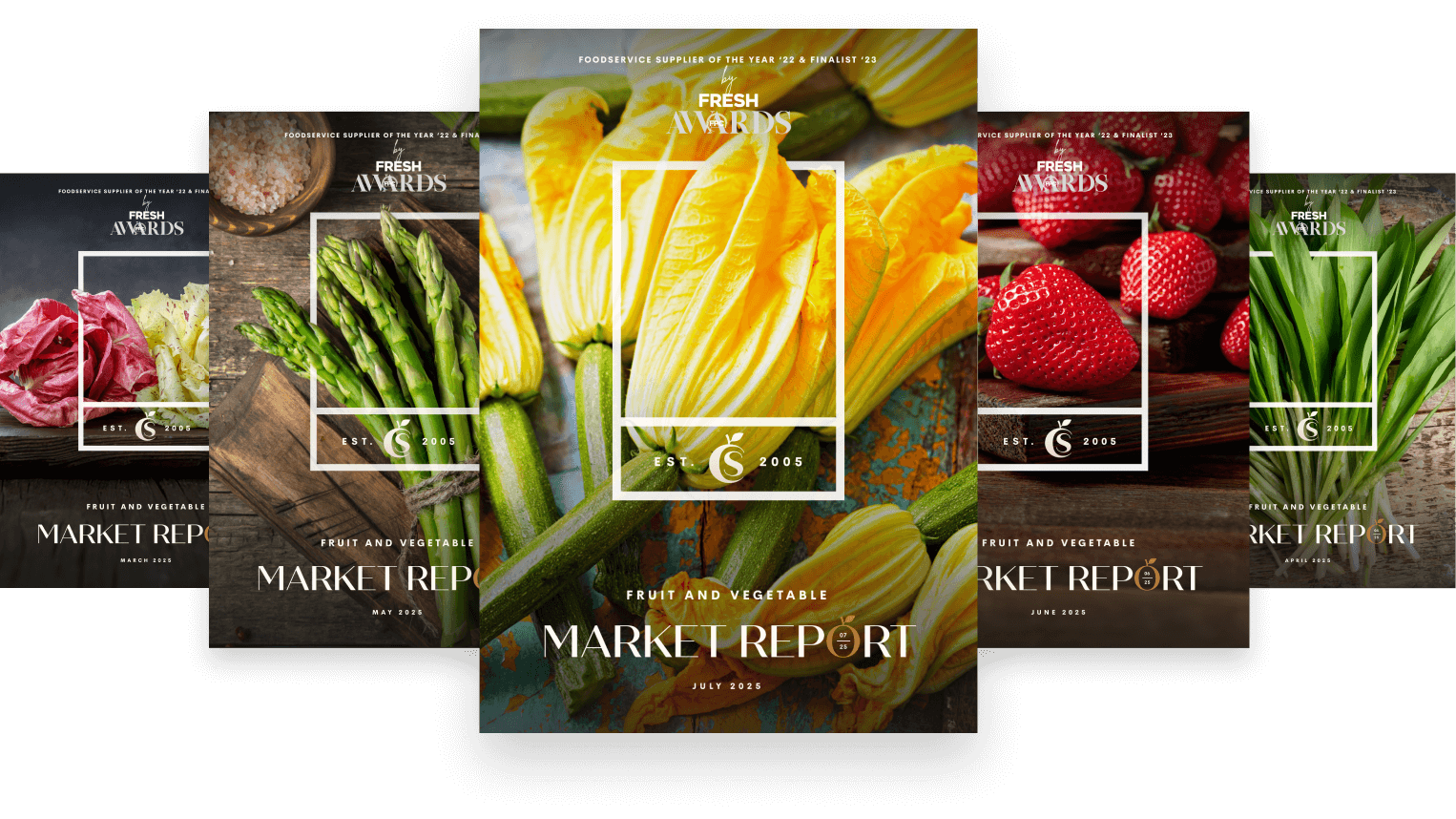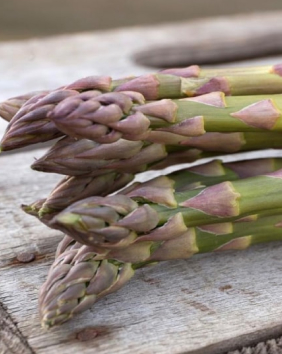

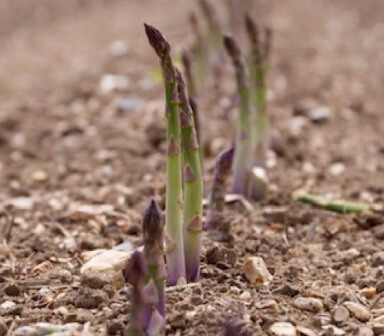
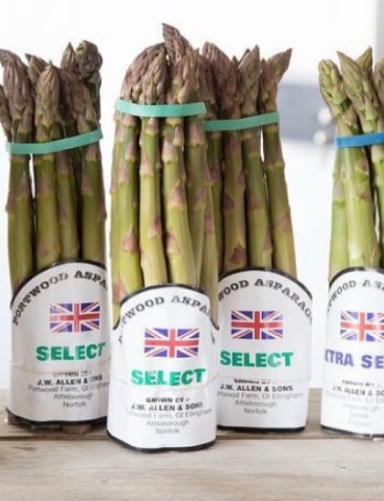
PORTWOOD ASPARAGUS
The J W Allen & Sons partnership was set up in 1980, with asparagus being introduced in 1985. Marketed under the Portwood Asparagus brand, 200 acres of the farm is now committed to asparagus with 250 tonnes produced annually.
Farm owner and former Chairman of the British Asparagus Growers Association, Andy Allen talks to County Supplies Founder & CEO, Robert Hurren on the history of Portwood, the challenges of running a farm in a post-Brexit world and his thoughts on what makes for the perfect tasting asparagus spear.
Andy, it sounds like your family has been farming for many years. When did it all start?
Our family has been farming in Norfolk for over 250 years and I’m fourth generation here at Portwood where we farm over 1000 acres of cereals, wheat, barley and rape – with another 200 acres now dedicated to asparagus.
Why did you make the transition to asparagus?
After leaving agriculture college in Essex in the late 80’s, the farm wasn’t making enough money to support everyone. So, I wanted to explore something new. When I was little, my grandmother grew asparagus in the garden here at Portwood and I remembered how quick it could grow. So, I thought “well, let’s give it a go” – and here we are now!
We started with two acres of asparagus and expanded reasonably quickly. However, today, with the number of uncertainties that face British farmers, particularly around labour post-Brexit, I’m not looking to grow and plant any more asparagus for the foreseeable future.
How much do you harvest each year at Portwood and how long does the harvesting season last?
We harvest around 250 tons a year, selling around 180-200 tons.
The traditional harvest start date is 20th April, St. George’s Day, although it’s very weather dependent. We finish harvesting on 21st June. The reason for this is we allow the last few spears to continue growing to produce the fern to feed the crown for another year. So, it’s simply to allow the crop to regenerate again for the following year.
We grow crops both outside and in polythene tunnels. This allows us to have asparagus on the market earlier than anybody else from 1st April.

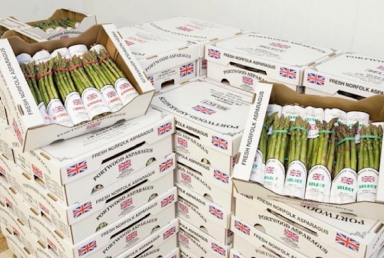

What’s the best climate to grow high-quality asparagus?
Well, if you could grow asparagus in a bag of sand on top of a radiator and drip feed it with water, that’s the best way to get tones of asparagus – but it will have no flavour!
To produce an intense flavour, you want to grow it slowly. The speed at which it grows can really affect the taste. As can the ground it grows in. Here at Portwood, we are growing on a medium sandy loam, over the top of clay soil. This gives it its intense flavour – which is what we’re known for.
So, what makes for the perfect tasting asparagus spear?
You’re looking for an intense yet subtle flavour, and you want to be able to eat it all – from top to bottom. So, we grade our asparagus by diameter to ensure when you cook it, it cooks evenly.
We use a computer-grading camera system which analyses every spear and grades them against 64 different criteria including shape, size, colour and curvature. From here, it’s then categorised into choice, select, extra select and jumbo. This enables us to ensure our customers – the chefs – get exactly what they want. Anything that doesn’t make the grade, which is a little bent or twisted, we set aside. If it’s not straight with a perfectly tight head, it won’t sell.
With that in mind, do you supply any surplus?
Yes, we sell it all as ‘kitchen grade’. There’s nothing wrong with it. It’s really good value – a little cheaper than the perfectly graded spears. However, there’s less demand for it which is a shame as it has the usual flavour but just does not look perfect. It’s perfectly good produce.
You mentioned previously that you have consciously chosen not to supply supermarkets but, instead, wholesalers and farm shops.
From an early start, I chose not to deal with supermarkets. Instead, I preferred to deal directly with wholesale markets and suppliers. We now supply every wholesale market in the country and nationwide from Southampton – where we supply the P&O cruise liners into the Channel Islands – Bristol and Birmingham to Manchester, Liverpool and across into Northern Ireland.
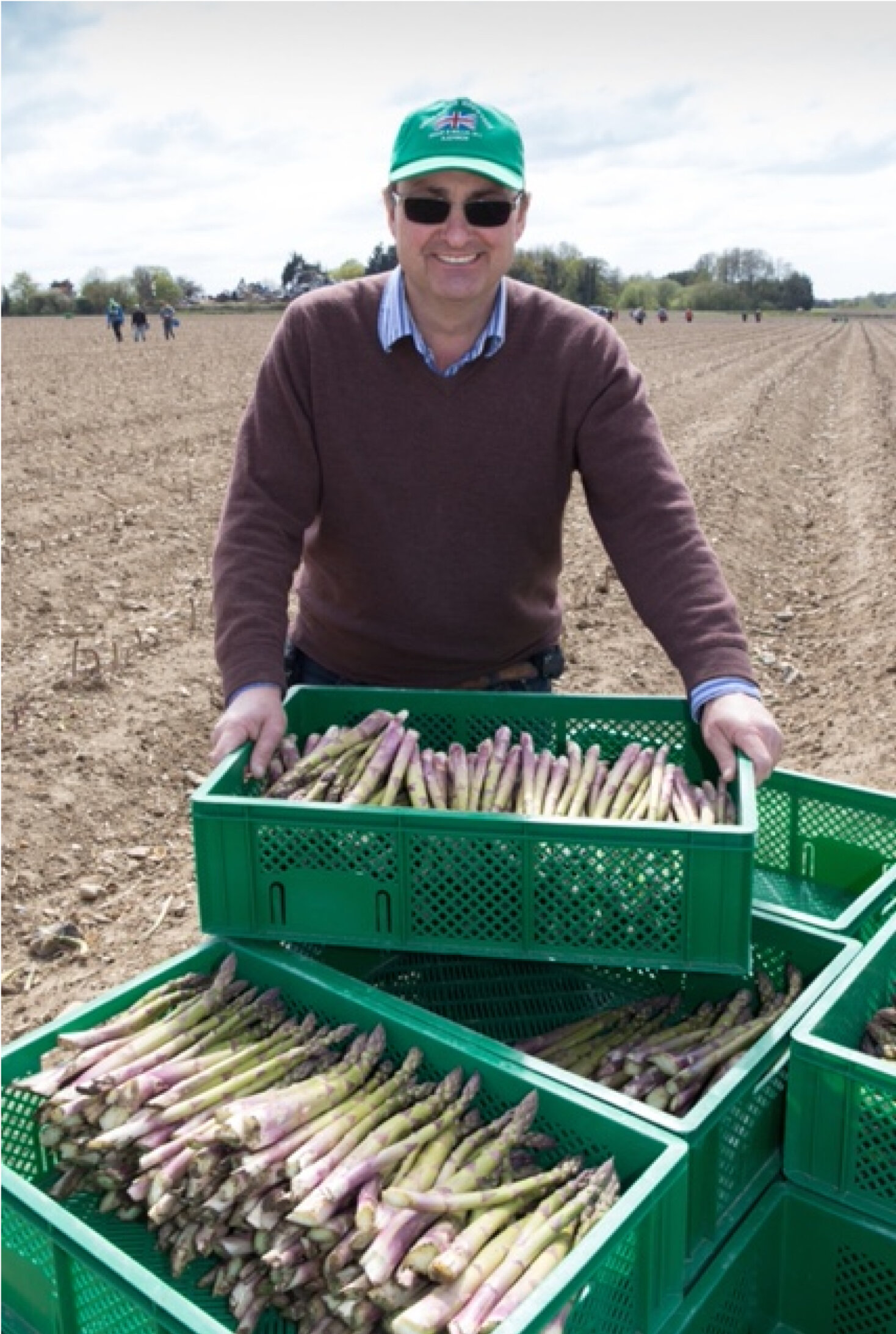
How is the changing climate impacting how you grow?
We’ve been growing asparagus in polythene tunnels for over 20 years to protect the crop from the British weather. We’re used to getting the seasonal hot and cold days, but we are now experiencing more extreme weather which is proving more difficult to manage.
April, for example, was very cold with below average temperatures. As a result, we only cut a third of what we would normally expect to cut. So, weather is a big problem.
What are the challenges of running a farm?
As a direct result of Brexit, we’re experiencing labour problems. The prevention of a free flow labour market has taken its toll on those of us that require seasonal workers each year. As a result, I’d estimate we’ve lost more than £300,000 worth of asparagus. The cost of labour has rocketed too – up 24% in three years – and I don’t see this improving any time soon.
As I’ve mentioned previously, it’s also the unpredictable nature of the weather. This season, in particular, has been very poor in East Anglia. We’ve had a colder than usual spring and here, in Norfolk, we get the north-easterly winds from the North Sea which is less than ideal.
Finally, what’s your favourite time of year on the farm?
For me, it’s the spring. I love growing things and spring is when everything kicks into action. As a farmer, that’s the greatest time – seeing the crops come to harvest and getting around and meeting the customers. Definitely the best time of year.
Introducing the new County Supplies grower series:
At County Supplies, we source the very best seasonal produce from leading British growers.
From crunchy apples in spring and baby leaf during the summer to selecting the finest autumn squashes and handpicking festive Brussel sprouts – we’re proud to support our amazing growers.
Through our new series of grower interviews, we are sharing their stories and passion for the best seasonal produce. From succulent strawberries to the perfect asparagus spears, learn how they maximise both flavour and quality, and are working towards building a more sustainable farming future.
